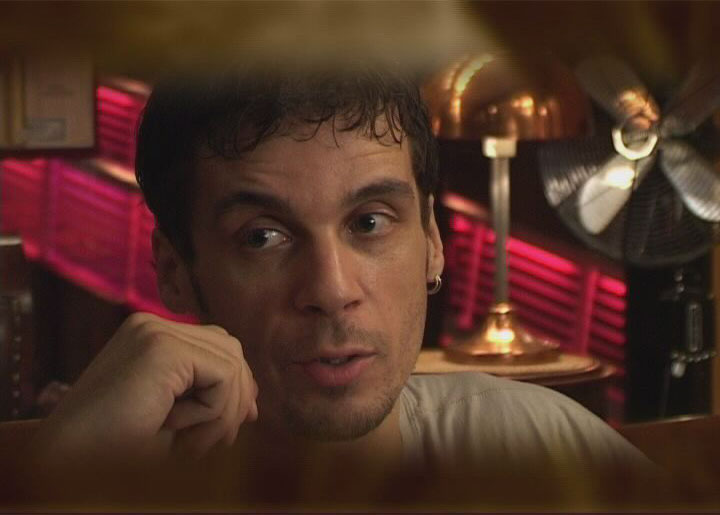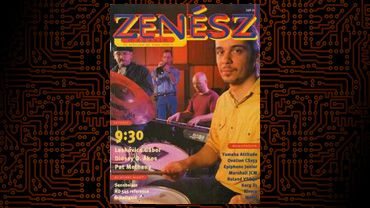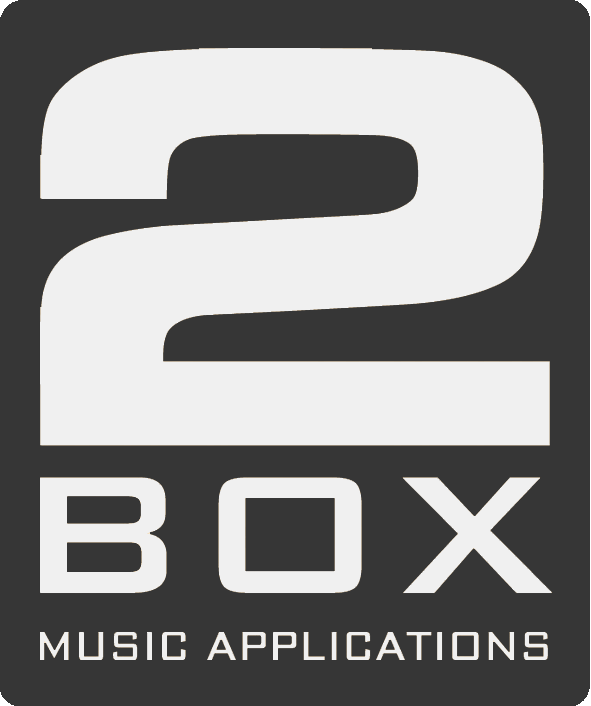 |
Interviews"For me, it has always been a critical issue how authentically and closely the disclosing reporter, photographer, cameraman or even sound engineer could convey the musical and other thoughts and ideas I addressed at the world. There are few things that bring me down more than sitting in for an interview and then, when it is published or broadcast – being confronted with the fact that my discussion partner had not glimpsed the faintest idea of what I meant. Unfortunately, this happens more and more often." |
 |
Zenész (Musician) magazine, 1998There was once a legendary album by Weather Report, the 8:30. Nearly two decades later a brand new Hungarian formation decided it was time to move on, and they took the name 9:30. Sorry, that was just a journalist's introduction. Because these musicians are far from being arrogant, though they have good reason to be satisfied with themselves, because the album has been a topic of conversation in the music world ever since its release. The album bears the same name as the band, 9:30, and we spoke about it to drummer, composer and musical director Endre Huszar. |
|
- The name 9:30 does indeed hark back to 8:30, he says. In fact one of the songs was dedicated to Joe Zawinul. At the same time we wanted to thank the 110 Jazz Klub for their help, because the basic idea came from the director of the club. Initially the idea was for a disc, not a band. We were preparing to write music for Gyuri Szappanos that would be just right for him. I was asked to do the arrangements and musical direction for the album, and to write three songs. But songs from the others weren't really forthcoming, and suddenly I found myself writing the whole disc. That is, the recording consists mostly of my songs, sometimes using others' ideas as a starting point, or as supplementary material. - What kind of music is it? - We deliberately didn't follow the most fashionable acid jazz trend, and preferred to delve into the most productive fusion period, the jazz-rock music of the 70s. That's another reason for the reference to the Weather Report disc. Fair enough, because it took a while to get it released (it was supposed to be out for autumn '96), meanwhile we recorded new songs, which are more modern, and so the thrust of the whole album shifted towards the contemporary. - And how did a band form from the one-disc production? - First I'll explain why we did the album itself. We knew this music wouldn't garner huge success; it'd never get on the MAHASZ list (hit list of the Federation of Hungarian Record Labels), and the most we could hope for was recognition in professional circles. But this, we definitely wanted to achieve. And what's more, we wanted to be able to stick it in front of anyone in the world, without them needing a "manual for listening", without them needing to know Hungary was sacked by the Tatars, there was the Battle of Mohács, these miserable conditions should be taken into account. The logical conclusion of this attitude is that we didn't want to play live. After all, we could never meet that standard in concerts in Hungary, given the usual technical facilities in gig venues. And if there was no gig, there was no band. Plus, the band could obviously not support its members, as a result everyone would play in hundreds of bands, and that too would weaken the original concept. We did all the recordings with this basic attitude. We only wanted to make one disc, but that had to be the best. That's why we invited loads of friends, we even got through four saxophonists and four guitarists. Not all of them were used on the album, though in this case it's not to criticize them. It's just that their style didn't fit into the given character. So the recordings went ahead, and we got more and more enthusiastic. Some said how good it would be to play these songs live. We were further spurred on by the fact that the songs of the half-finished disc had done the rounds on a cassette, and all the feedback was positive. Which is surprising, because in Hungary musicians usually first scratch their nose, then tell you where you went wrong. Last year we were invited to the Hungarian Jazz Festival. Before that we didn't play anywhere, and we had to perform in dreadful circumstances technically. But the gig worked out, and the unknown 9:30 met with success. From that time on we can say there was a band. - The band may have been unknown, but the members weren't. We know that Szappanos plays bass, and you drums. Who are the others? - Sándor Zsemlye, Zsömi, on saxophone, Kornél Fekete Kovács on trumpet, and János Nagy on keyboards. Our guitarist for the live performance will be Tamás Mohai. As I said, others will be on the CD too. We always invited the people who produced the most suitable music for each track. Nobody in the band was put out by this. Not even me, when I invited Gergő Borlai to play drums for one track. I knew he would do it better. Gyuri Szappanos plays bass guitar all through, not just accompanying, he has themes too, and sometimes a solo. On the opening track Tibor Tátrai plays the guitar: he performs a solo I can't imagine anyone else in this country producing. Incidentally, it's interesting that despite him playing in a style completely alien to him, it worked out really well. János Kormos, the most reliable guitarist in the country, also plays on the CD. He learnt it and gave it what it needed: you can't fault him. The third guitarist, Miklós Birta, was a real discovery for me. Until then I'd never heard accompaniments with such character. He performed so well that in the end he played much more on the CD than originally envisaged. As regards saxophone, as well as Zsömi, Sandra Grant plays, on keyboards there's Gábor Kovács, who came up with a good few ideas for songs. Two songs are vocal. In the first track Jamie Winchester does a rap. But not just anyhow: at last we hear a kind of rap that doesn't make the whole thing sound ridiculous. On another track Sandra Grant sings. She didn't even come here for the CD. The remix of the two Brainwash songs got into the finals of the Billboard '96 song competition, and there was talk of doing a similar number. We did it too, but it found its way onto this CD here. - Which studio do you work in? - Yellow Studio. Tibor Rostás isn't just a sound engineer, he's an equal as a creative artist. He plays a large role in making the end product match our initial vision. True to say, if we were to start recording tomorrow, I'm sure I'd do it differently, but that's natural. More important is that in my opinion there's nothing to be ashamed of on this album, nothing to explain. -And the label is Fél 10 (9:30)? - The company that runs the club. It's great that they took on the production, they weren't even put off by all the delays. I guess it's a once-in-a-lifetime chance: they gave me money to do want I want, and they didn't interfere. For some reason they believed the album would be good. For the time being it seems they have no regrets. - Between some tracks on the album there are scenes in the studio. We hear conversations, wisps of melody. Why? - Usually a CD consists of songs that have been played in the studio umpteen times and corrected. My aim was to make our album convey something of the atmosphere of the recording itself. I secretly made recordings of the interludes in the control room, then of course I showed the others what I'd like to put on the album. I cut out the risqué bits, so there was no problem. Even so, some folk ask whether it's not weird to have this on this album. I don't think so, but if it bothers you, you can easily programme your CD player to play only the songs. - A few days ago the album was finally released. What do you expect from it? - Actually it would be good if it sold as well as the Smurfs, but that's impossible. What's certain is that the album will be recognised in music circles, but we aim for more. We'll try to make our existence common knowledge, so at least folk interested in music will know about us. Unfortunately the problem is that if someone has standards when buying a CD, they don't look for Hungarian productions. But our aim is not even for them to buy the CD, but just to know it from somewhere. And to come to the concert, if they want to hear that kind of music live. -So there will be concerts? - There'll certainly be a few. We deliberately don't want to play many. Or rather we can't, because there are so few places with suitable conditions, and this music really needs technical backup. If it doesn't sound good, there's no point to the gig. And it's not pub music, though it's certainly true you don't have to listen with your mouth gaping open and your back straight as a broom. So it's difficult to perform, but another reason we don't want to play a lot is that if we suddenly break into every venue now, after a year everyone will be sick of it, the audience and us too. - So 9:30 has become a band. But there aren't really good conditions for you to perform, and the members are involved in other bands. Doesn't that matter now? - There is a band in the sense that each musician respects the band, and the band can count on him. Somebody might have eight or ten bands, but if they have to come here, they shouldn't get out their diary and see whether there's a more lucrative gig that day. - Many of the tracks are instrumental, and the vocal parts are performed by native English speakers. Apparently you have plans abroad too? - There's talk of a few gigs. That's why we want to start doing concerts as soon as possible. Our first gig, thanks to some miracle, went well, but then we had a weaker do in the Fél 10 Club, where it became clear we need to do concerts constantly. Just to keep the programme developing. As for the disc, of course we'd like to sell outside Hungary. There are several lines of attack, but it's too early to say anything concrete. But really we only have one desire, be it a performance in Hungary or abroad: we want to get far enough with the first CD to be able to do the second too. György Maróthy |



